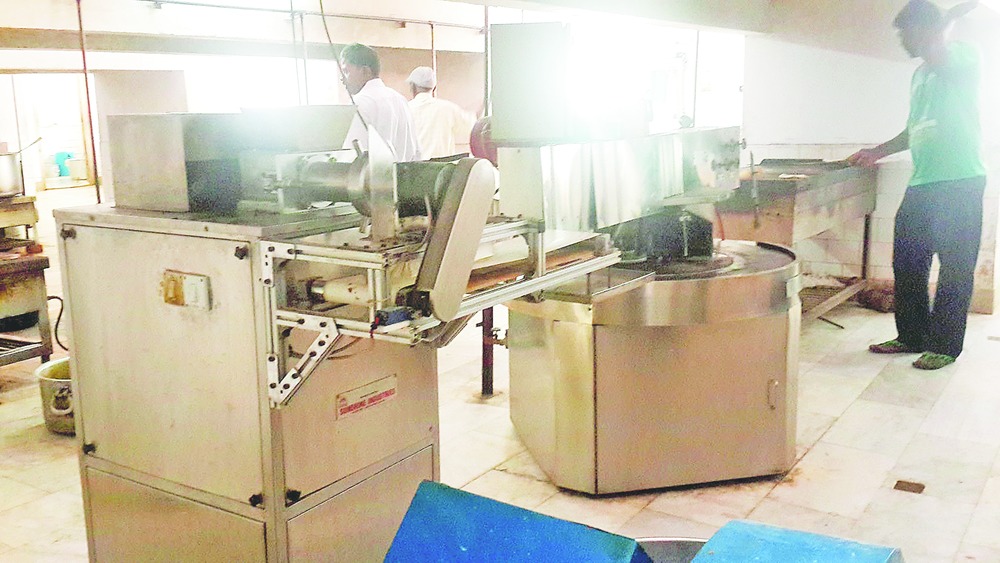
The sole roti-maker at the kitchen of RIMS, Ranchi, has gone out of order since Tuesday night, with the result that only diabetics are getting handmade rotis while the rest are on a rice diet, no matter what their ailment.
This is second time in a month when the five-year-old roti-maker, which can prepare over 5,000 rotis a day, has gone defunct.
On Thursday, this correspondent saw eight kitchen helps out of the total 25 engaged in making rotis. "It takes us three-four hours to prepare 500 rotis," one said. "The roti-maker keeps going out of order often these days. Last time, during Id, it remained out of order for nearly 10 days."
However, RIMS dietician Kumari Meenakshi had a different story to narrate.
"The staff are careless in handling the device that results in frequent breakdowns," Meenakshi alleged. "Oiling the machine and keeping the griddle (tawa) maintained properly was very important. Somehow, the kitchen staff don't follow the maintenance routine. On Tuesday night, someone put some heavy objects on the griddle after which it stopped functioning."
Usually, three staffers are engaged in making rotis on the device, Meenakshi said. But, she alleged that the staffers complained that manual labour was no less even when the device was used. They complained that preparing dough and balls to put in the device was time consuming, the dietician rued.
"They have often said that making 500 rotis for them was easier than investing time and labour for 5,000 rotis with the machine," Meenakshi said.
If Meenakshi's accusations against the staff are any hint to how the RIMS kitchen operates, there are bigger issues that needs to be look at.
At present patients are entitled to a diet worth Rs 100 each day, but what they get is hardly worth Rs 50 to Rs 60. Going by rates, pomegranates could be bought Rs 125 per kilo. What do patients get? Kitchen staff and other employees keep aside good proportion of the food," the source claimed. "The food meant for patients that Dr Basundhara (RIMS deputy superintendent) checks regularly for quality is different from what is actually served to the ailing. When Dr Basundhara catches the difference, she does scold the kitchen staff. But it fall falls on deaf ears."
When Meenakshi was quizzed whether rotten mangoes were served on Tuesday, she did not deny the charge.
Asked it was okay to serve rice at night to patients in monsoon, she kept quiet. "The roti-maker will be repaired by tomorrow (Friday)," she said.
Dr Basundhara, when contacted, readily agreed when asked whether installing CCTV cameras at the RIMS kitchen was a good idea. "It seems to be the need of the hour, considering the way things are going," she said.










